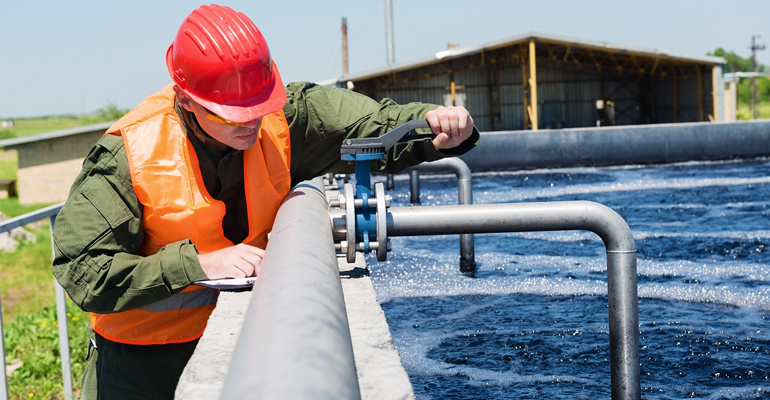
Only 3% of world's water is suitable for human consumption, 2% water of that amount is found in ice & glaciers. So we remain with 1% of fresh water from water bodies and rest of the potable water is met by rainwater. Water is one of the most misused renewable resources and hence its treatment is neglected by numerous industries and us. Yes! You're right, not only industries but we are also to be blamed for the increasing global contamination of fresh water. Globally it is estimated that two million tons of sewage is discharged into water bodies, Due to the sewage discharged without any treatment the waterborne illness ratio of death of children less than 5 years of age has increased up 1.2 million.
The statistics makes you smile, does it? If not, We are happy you are one of our buddy sailors who's on a mission of 'Creating Clean Water Globally'. Do we really need to be taught about significance of water as a resource? Let's open our kinder garden books and read the one famous quote' Save Water, Save Life'.
We humans often don't realize the impacts until we have a list of consequences ready to be dealt with.
More than 38000 million litre per day sewage is generated in India. But, the treatment capacity is merely around 12000 million litre per day. The percentage is not even 32%. We aren't allowed to clear an examination below 35% grades and here we are polluting and stigmatizing Mother Nature.
In India, cities are considered as class-I which produce 35558. 12 MLD of total waste water which is 93% of total waste water produced. The statistics clearly indicate that literacy rate doesn't impart any significant thought process on us. Even after having a literacy rate of 74.04%, we fail to understand the global problem we are facing.
After going through the consequences list, let's dig deeper into the advantages of Wastewater treatment.
Waste water treatment processes can remove a variety of contaminants from water to make it usable for abundance applications. The benefit of the treatment depends on the contaminants or source of waste water. Researchers are developing new technologies to treat the waste water, such research leads to improvements in purification, the methods of water treatment and use of the waste products removed. We have characterized some advantages of Waste Water treatment.
An estimated 8 Billion people would be polluting the Earth's conventional and non-conventional resources by 2025 which is dramatically high. You can conceptualize the impact of the rising population. The current water supply available is unable to sustain the current population, hence a process to produce better and more potable water is a must to guarantee a clean, usable water supply for everyone in the near future as well. Wastewater management can achieve this result by merely undergoing its natural process of taking excess or used water, dosing of chemicals for maintaining the pH value, biologically decomposing of the sewage and then filtering out harmful contaminants or sludge, leaving a water source clean and safe for everyone. This removes the factor of water shortage, droughts and harmful water supplies as the water can be reused timely again.
Adequate treatment of Waste water can really do wonders. Waste water usually contains very harmful chemicals and the source of hazardous effluent differs from industry to industry. This hazardous water if left untreated into the water bodies can often be carcinogenic and may engender a water borne epidemic such as cholera, dysentery, gastroenteritis, etc. Reduction of more than 90-95% is achieve through efficient technologies of waste water treatment. In these technologies the entire treatment process is divided into primary, Secondary and Tertiary stages.
One litre of untreated wastewater pollutes more than 8 litres of freshwater. A combination of right technology and proper operation of waste water treatment plants reduces waste and removes all the organic pollutants in the water supply, it has the potential to protect wildlife and fish by supplying clean water to several water bodies like rivers, oceans and sea. Citizens can enjoy the experience around these bodies of water knowing the water is clean and contaminant free. The water from the treatment plant can be repurposed to treat areas experiencing drought conditions or areas where the atmospheric or climatic condition are very severe.
A significant amount of biodegradable material is removed from the waste water in the treatment process. This biodegradable material or we may call it as sludge can then be further used to produce methane gas and may be used as a source for producing electricity The compost contains biodegradable elements that are first dried with the use of 'sludge-drying lagoons' and then turned into natural fertilisers. This is an advantage not only in the agricultural industry but also in the environment since this reduces the use of chemical fertilisers that contribute towards soil, water and air pollution.
Advantages can really be sought after once we clearly adhere with the fact of committing ourselves for the betterment of our ecology and being the solution for environmental concerns, or else it can merely be a mission with no sailors or a one way trip to space where the entire universe would be observed by only one. Let's join hands to make this world a better place to live,


Your email address will not be published. Required fields are marked *